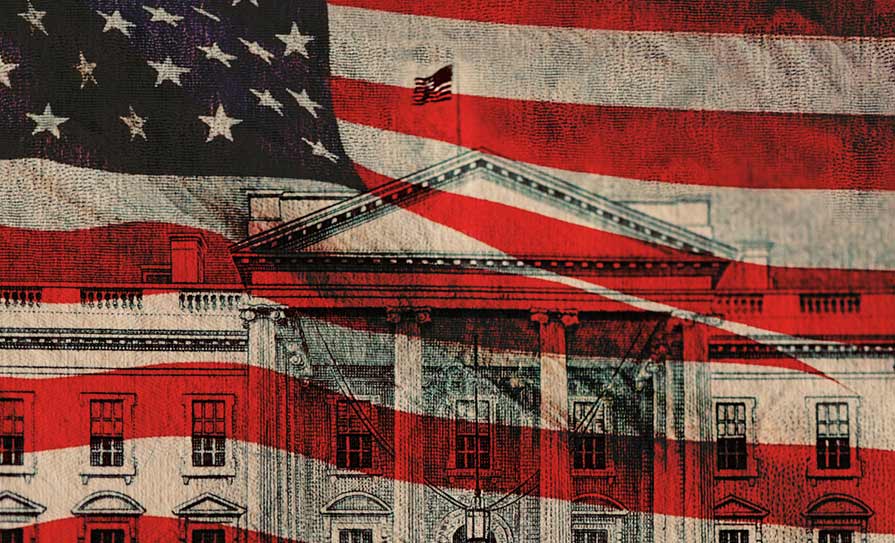<div> <h3 class=”DORSALheadMIstyles”>Reading between the lines on Trump’s health policies</h3> </div>
It has been the mother of all years for upsets. In sport, think Iceland, Connaught and Leicester City FC. In politics, think Brexit and of course the biggest middle finger ever from the electorate to the American political establishment — President Elect Donald J Trump.
We all thought that we would never see the last sentence in print but while it’s the biggest protest vote in modern political history, it’s far from the first. In France, Jean Marie Le Pen first made waves in 2002 and for decades in the US and elsewhere, Mickey Mouse, Donald Duck and Bugs Bunny have featured regularly on ballot papers, written in by voters fed-up to the back teeth of copy-and-paste political candidates.
In years gone by, there were discernible differences in the philosophies and policies of major political parties — think Labour vs the Conservatives in 1970s Britain — but in the past decade or more, parties have drifted towards each other to the point where they are almost indistinguishable. Not least in Ireland.
But this Trump business is different and serves as a kick in the pants for political establishments everywhere — if they didn’t know people are fed-up with them, they know it now.
If you have recovered from the shock of his success, it could be an opportune moment to catch a breath and consider what it might mean for US patients. He was elected on a wave of emotion but has been short on policy details. One thing he promised to do was immediately dismantle Obamacare and spoke of “a series of reforms ready for implementation that follow free market principles”.
But perhaps the reason he was short on details is that he never really planned to abolish it in the first place. He has already begun to soften his stance on a number of issues and recently told a number of US media outlets that there are elements of Obamacare he intends to keep. His acceptance speech was also surprisingly conciliatory and thousands of bricklayers in the US are nervous as rumours surface that he may roll-back on the hairbrained idea of building a giant wall on the US-Mexico border.
“He may not spend much time trying to get Mexico to pay for it, but it was a great campaign device,” said Newt Gingrich, who was part of the Trump team.
And then there’s the promised mass deportations: Republican National Committee Chairman Reince Priebus has said Trump is instead now calling for the deportation of criminals.
Trump was elected on the basis that he is a no-nonsense, hard-nosed businessman who will ‘get the job done’. But if he’s already back-pedalling, perhaps he’s just another career politician after all, an opportunist, a chess player.
Get ready for Micheal O’Leary’s announcement prior to the next General Election on this side of the pond.
<div> <h3 class=”DORSALhead2MIstyles”>He’s started, so he’ll finish…</h3> </div>
Loss of innocence can be a difficult thing. So it was when I recently came across some disturbing news.
If, like me, you spent a fair portion of your youth watching <em>Mastermind</em>, open-mouthed at the seemingly vast array of knowledge displayed by the young contestants and feeling ecstatic if you managed to answer even one or two of the questions, then read on.
The current host Jeremy Paxman (he’s good, but he’s no Magnus Magnusson) was plugging his new book recently and to my shock, revealed that a lot of the incorrect answers are edited out from the final cut.
“I’ll let you into a secret [on how] University Challenge is recorded,” Paxo told an audience at Henley Literary Festival in the UK. “If we get a run of questions, it doesn’t happen very often, say one show in seven or eight or 10 or something, you might get a run of unanswered starter questions, they all get edited out.”
Oh dear. If only medicine could be practised like that.
<div> <h3 class=”DORSALhead2MIstyles”>The curse of acute pain</h3> </div>
It has been known for some years that swearing actually increases patients’ pain threshold. It’s just something that has to be tolerated and the trade-off is that you might get through a procedure without having to pause several times.
If you find some of the phrases used by a patient in pain objectionable, perhaps the work of Dr Todd Gray in the UK may be of help. Dr Gray trawled more than 40,000 documents from the 1500s and 1600s for his book <em>How to Swear like an Elizabethan in Devon</em>. They are a lot more tame than the modern variety of swearing and might find a place on your clinic wall.
‘Rogue’ and ‘knave’ were considered hard-core, foul-mouthed stuff, but common swearing parlance also included phrases such as ‘tarse’, ‘nippy’, ‘bald-arse’, ‘hollow-mouthed’, ‘gouty-legged’, ‘copper-nosed’, ‘long-nosed’, and ‘tarse’.
Complaints were regularly filed with authorities if one was called a ‘wittol’, ‘polecat’, and perhaps the most surprising addition, a ‘cucumber’.
There would have been ‘wigs on the green’ if they had heard some of the language used by the gouty-legged knaves nowadays












Leave a Reply
You must be logged in to post a comment.